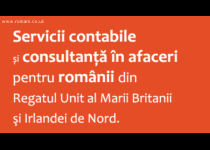Demersul ambasadorului se inscrie in seria de articole, interviuri si interventii publice ale acestuia in apararea imaginii Romaniei si a comunitatii romanesti din Marea Britanie, si vine ca raspuns la afirmatiile jignitoare recente ale liderului UKIP, Nigel Farage, referitoare la imigrantii romani si bulgari.
Reactia este cu atat mai indreptatita cu cat, in ultima perioada, numerosi cetateni romani din Marea Britanie au sesizat Ambasada ca se confrunta tot mai mult cu atitudini si remarci xenofobe, indiferent de statutul lor social. Ambasadorul reaminteste cititorilor ziarului The Telegraph ca in Marea Britanie, tara care a dat umanitatii Magna Carta Libertatum si a raspandit cultura si civilizatia sa in intreaga lume, rasismul si xenofobia nu ar trebui sa-si gaseasca loc.
Precizand ca nimeni nu poate spune cu exactitate cati romani vor veni in UK dupa 1 ianuarie 2014, dar ca cetatenii romani, ca orice alti cetateni europeni, au dreptul sa circule liberi in Uniunea Europeana, ambasadorul Ion Jinga apreciaza ca dorinta altor europeni de a veni in Marea Britanie arata faptul ca aceasta este o tara ce ofera oportunitati, iar britanicii ar trebui sa fie mandri de acest lucru. Referindu-se la teama britanicilor ca o venire masiva a romanilor in UK va pune presiune pe sistemul de sanatate si cel de beneficii sociale, ambasadorul explica profilul cetatenilor romani din UK si demonteaza mitul vanatorilor de beneficii sociale.
Tot in aceasi editie, este publicat si un articol semnat de reputatul corespondent politic al ziarului, Christopher Hope, cu titlul „Romanian doctors suffering racist attacks because of UKIP’s rhetoric, says ambassador”, in care comenteaza articolul ambasadorului Romaniei trimis redactiei sub forma unei scrisori.
Cititi mai jos cele doua articole.
Ion Jinga: Guilty of being Romanians in the UK
By Ion JInga, Ambassador to Romania
(5:30PM BST 26 Sep 2013)
I have received a letter from a Romanian doctor working in a London hospital. She came to Britain in 2005 after graduating in Bucharest and is one of the 2000 Romanian doctors educated in our universities who have been convinced by British recruiting agencies to come and work here because there is a shortage of doctors in the UK. Needless to say the health system in Romania desperately needs them, even though I understand that money and professional opportunities may be valid reasons to come to the UK.
As ambassador to the Court of St James’s I met thousands of Romanians living in Britain and I received hundreds of letters from them, but this one was different. The lady who wrote it is a surgeon, a qualification she received in Britain after tough exams. Her career is accomplished; she has a family and a house in London. From such a successful professional, with an upper social status, you do not expect complains about discrimination and racism.
She wrote to me: “It is increasingly more difficult to live as a Romanian citizen and Romanian professional in the UK. The UK is a country totally against racism and cultural blame. Unfortunately, this is what we are facing since January 2013 thanks to a part of the mass media and to some politicians. Romanians and Bulgarians are feeding mass media every day and this is not without consequences. I had never faced racism in this country until 2013. Now, almost on a daily basis I am asked where I am originally from, and I have to face a racist attitude following my answer. Some people do not say anything, the majority of them express a surprise only, some of them tell me that I do not look like a Romanian and some others start negative comments against us. I had to deal with this attitude from both patients and unfortunately senior colleagues at the work place. The blaming culture and racist attitude against us are damaging our lives and reputation. The vast majority of Romanians here are hard workers, honest, committed, paying taxes, contributing to the growth of this country, in the end of the day.”
When, during the by-election campaign for Eastleigh, the candidate of a political party that expects to win the next European elections using xenophobic slogans linked Romanians with “a natural propensity towards crime”, I expressed concern that inflammatory rhetoric could have long term negative consequences and even lead to acts of racially assaults. Unfortunately, I was right because soon after, in Brighton, two young Romanian workers were attacked only because they were speaking in a language identified by their aggressors as being “East European”.
In the last eight months, the British public was continuously served with scaremongering and distorted information spread out by tabloid media and a political party where one of its leaders recently called a room full of female delegates “sluts”. “29 million Romanians and Bulgarians (the entire population of both countries combined) will descend upon Britain on 1st January 2014”, “Stop mass migration from Bulgarians and Romanians in 2014”, “Romania and Bulgaria are two countries racked with corruption and organized crime”, “New wave of EU migrants is taking our jobs”, or “People in Romania and Bulgaria are living like animals and will want to live in a civilized country like the UK instead” – to quote only a few appalling remarks.
How such attitude is possible to flourish in the UK, the country which gave to the mankind Magna Charta Libertatum, spread its culture and civilization all over the world and – for good reasons – is one of the most admired modern democracies? The answer was given by the Business Secretary Vince Cable, when addressing his party’s conference in Glasgow: “Britain is developing an absolutely toxic public opinion on immigration”.
Certainly, a large majority of Britons rejects any xenophobic behaviour and outstanding British personalities have expressed their appreciation for the valuable contribution Romanians living in the UK bring to this country: the Prime Minister, the Speaker of the House of Commons, the Europe Minister, the Crime Prevention Minister, the Chairman of the Home Affairs Committee in the House of Commons – to name only a few. Most encouraging for me are also opinions coming from the ordinary people.
No one is able to say how many people might come to the UK next year from Romania. Romanians, as citizens of the European Union, are able to move freely within the EU - just like Britons. We have no idea how many Britons might go to Spain or France next year – and the same applies as regards Romanians coming here. As Minister Jeremy Browne pointed out, “they are only complying with the same rules as British people who live in Spain or have holiday houses in France, or who work in Germany”.
I think what rankles with the British public is not the fact that other EU citizens come to the UK. Personally, I would be proud of the fact that many Europeans like Britain and want to come here. It shows you are a country brimming with opportunity. No, what bothers the British, in my mind, is that EU citizens could come here and claim welfare and benefits without first contributing to the economy. I have a lot of sympathy with that, but it could hardly be linked with Romanians because their presence here is mainly the result of the demand of the British market. They do not put a strain on the social and health systems because most of them are aged 18 – 35, with few requiring health care or claiming social assistance. 62% have no dependants and 32% have only one child. From the total number of 40,171 child benefit claims last year in respect of children living in another EU country, only 324 went to Romanian children – it’s negligible. In short, they are net contributors to the public purse, not a drain. A recent study found that migrants from new EU Member States paid in through taxes 30% more than they cost the British public services.
Therefore my compatriots have no reason to feel guilty of being Romanians in the UK. Reason must prevail over emotional approaches.
***
Romanian doctors 'suffering racist attacks' because of Ukip's rhetoric, says ambassador
Criticism of eastern European immigrants by the United Kingdom Independence Party is fuelling violent attacks on Romanians here, the country’s ambassador to the UK has said.
By Christopher Hope, Senior Political Correspondent
(5:40PM BST 26 Sep 2013)
Ion Jinga said that Romanian doctors in the NHS - there are estimated to be around 2,000 - are now receiving racist comments from the British patients they are treating.
He revealed that a Romanian doctor wrote to him saying: “Now, almost on a daily basis I am asked where I am originally from, and I have to face a racist attitude following my answer.”
Romanians are now being made to “feel guilty of being Romanian in the UK”, the diplomat said.
The UK is due to open its borders fully to Romanians and Bulgarians next year. Ukip and its leader, Nigel Farage, have repeatedly raised concerns about that decision. Mr Farage regularly refers in campaign speeches to the number of Romanians in the UK who are convicted of crimes.
Writing at telegraph.co.uk, Mr Jinga says Ukip used similar rhetoric in the Eastleigh by-election, leading to violence.
He said: “When, during the by-election campaign for Eastleigh, the candidate of a political party that expects to win the next European elections using xenophobic slogans linked Romanians with ‘a natural propensity towards crime’, I expressed concern that inflammatory rhetoric could have long term negative consequences and even lead to acts of racially assaults.
“Unfortunately, I was right because soon after, in Brighton, two young Romanian workers were attacked only because they were speaking in a language identified by their aggressors as being 'East European'.”
Nigel Farage, Ukip's leader, rejected the criticism. He told The Telegraph: "I agree with Mr Ambassador - there is a real problem here.
"It seems to me that if there are only 80,000 Romanians in the country that we know of - and yet in London alone there have been 27,500 arrests in five years. There is an issue here but we are pretty careful about this."
Sursa: Press Office, Embassy of Romania in London


 Ion Jinga, the Romanian ambassador to Britain, tells The Telegraph: 'My
compatriots have no reason to feel guilty of being Romanians in the UK.
Reason must prevail over emotional approaches.'
Ion Jinga, the Romanian ambassador to Britain, tells The Telegraph: 'My
compatriots have no reason to feel guilty of being Romanians in the UK.
Reason must prevail over emotional approaches.'  Vernisajul expoziţiei „Imagini din Marea Britanie. 100 de ani de artă a peisajului din Colecţia British Council“ va avea loc , joi, de la ora 19.00, la Muzeul Naţional de Artă al României. În cadrul evenimentului vor fi prezentate 57 de lucrări care prezintă o imagine complexă a peisajului insular sub diversele sale aspecte.
Vernisajul expoziţiei „Imagini din Marea Britanie. 100 de ani de artă a peisajului din Colecţia British Council“ va avea loc , joi, de la ora 19.00, la Muzeul Naţional de Artă al României. În cadrul evenimentului vor fi prezentate 57 de lucrări care prezintă o imagine complexă a peisajului insular sub diversele sale aspecte. Români în UK și ICR Londra sprijină organizarea primei ediţii a Festivalului “Romanian Traditions in Motion”, ce urmăreşte să contribuie la întărirea identităţii culturale a românilor din Marea Britanie, dar şi să pună în evidenţă spectaculoasele tradiţii folclorice româneşti. Protagonistul Festivalului este unul dintre marile ansambluri folclorice ale României, „Cindrelul - Junii Sibiului”, însoţit de soliştii Ilie Medrea, Maria Filimon, Adina Popa şi Daniel Rosalim.
Români în UK și ICR Londra sprijină organizarea primei ediţii a Festivalului “Romanian Traditions in Motion”, ce urmăreşte să contribuie la întărirea identităţii culturale a românilor din Marea Britanie, dar şi să pună în evidenţă spectaculoasele tradiţii folclorice româneşti. Protagonistul Festivalului este unul dintre marile ansambluri folclorice ale României, „Cindrelul - Junii Sibiului”, însoţit de soliştii Ilie Medrea, Maria Filimon, Adina Popa şi Daniel Rosalim.

















